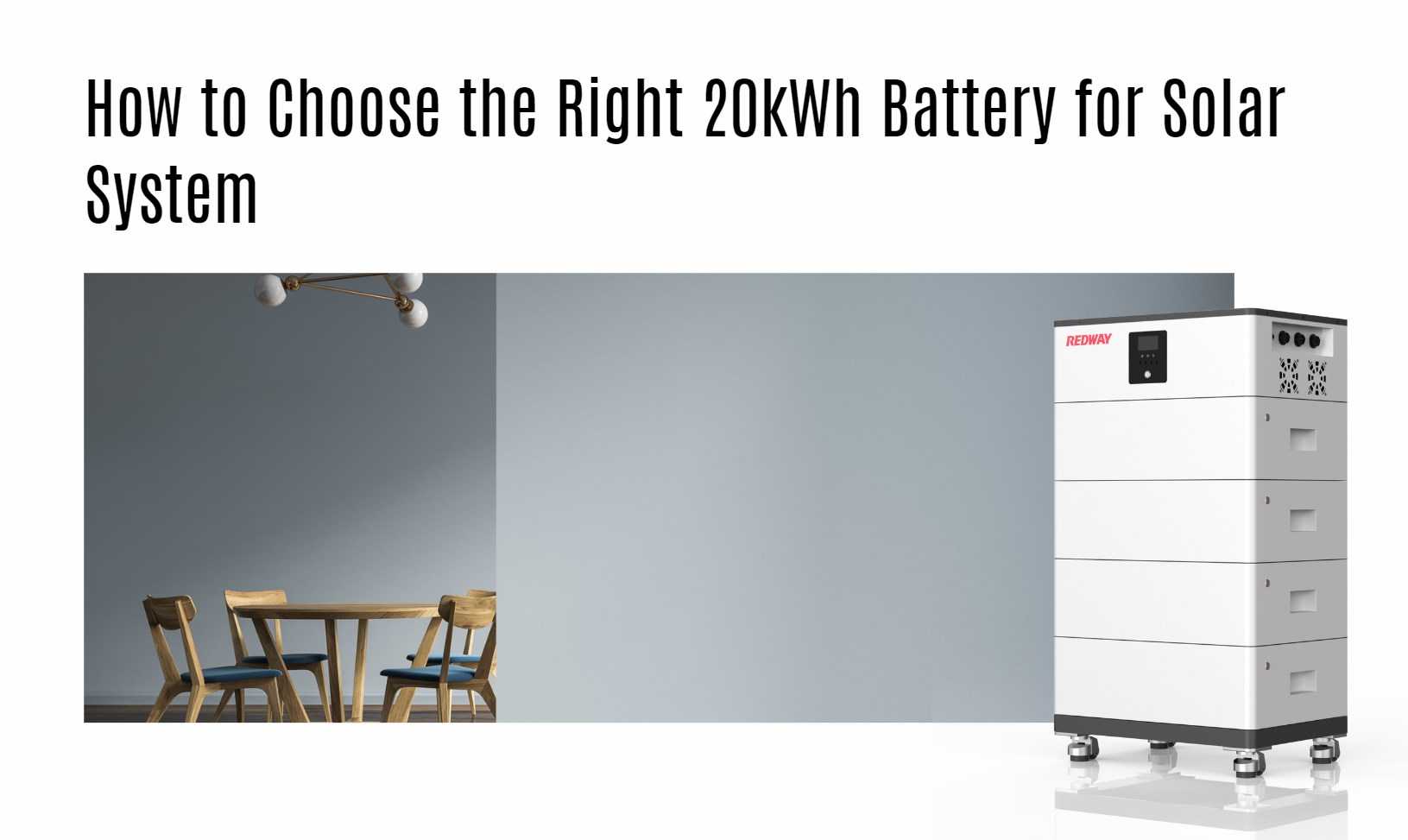Are you looking to upgrade your solar system’s battery to a 20kWh one? Congratulations on taking this step towards more energy independence and reducing your carbon footprint! However, choosing the right battery can be a daunting task. Don’t worry, we’re here to help! In this article, we’ll guide you through the factors to consider when choosing a 20kWh battery, and give you some expert tips to help you select the perfect one for your solar needs.
Amp Up Your Solar Game: Factors to Consider When Choosing a 20kWh Battery
When it comes to choosing a 20kWh battery for your solar system, there are a few key factors to consider. Firstly, the battery’s chemistry. Lithium-ion batteries are the most common type for solar systems, as they offer high energy density, long life, and low maintenance. Other types of batteries include lead acid and flow batteries. Secondly, you need to consider the battery’s cycle life, i.e., how many charging and discharging cycles it can handle before losing capacity. A battery with a higher cycle life will last longer and provide better value for your investment. Thirdly, you need to look at the battery’s capacity and power rating. Capacity refers to the amount of energy the battery can store, while power rating refers to the battery’s ability to deliver that energy. A battery with a high capacity and power rating can handle more appliances and devices at once.
Let the Sun Shine Brighter: How to Select the Perfect 20kWh Battery for Your Solar Needs
To select the perfect 20kWh battery for your solar needs, you need to match the battery’s specifications to your energy usage. Firstly, calculate how many kilowatt-hours (kWh) of electricity your household uses per day. This will give you an idea of the capacity you need. Secondly, determine your peak power needs, i.e., the maximum amount of power you need to use at once. This will give you an idea of the power rating you need. Thirdly, consider the amount of sunlight your solar panels receive, as this will affect how long it takes to charge your battery. A higher sunlight level means a quicker charge time.
Charge Up Your Solar Panels: Expert Tips for Choosing the Best 20kWh Battery for Your System
Choosing the best 20kWh battery for your system can be tricky, but with these expert tips, you’ll be able to make an informed decision. Firstly, consider the brand reputation and warranty. A reputable brand will likely offer better quality and support, while a good warranty will protect your investment. Secondly, look for a battery with a built-in battery management system (BMS). A BMS helps maintain the battery’s health and safety, prevents overcharging or over-discharging, and extends its lifespan. Thirdly, consider the battery’s compatibility with your solar inverter. Not all batteries are compatible with all inverters, so make sure to choose one that works with yours.
Choosing the right 20kWh battery for your solar system can seem overwhelming, but by considering the factors we’ve discussed and following our expert tips, you’ll be able to make an informed decision. Remember to calculate your energy usage, match the battery specifications to your needs, and look for a reputable brand with a good warranty and BMS. With the right battery, you can power up your solar system and let the sun shine brighter than ever before!





